 Dawson carefully examined the laminated material, and he found it to consist of the remains of an organism which grew in large sessile patches, increasing at the surface by the addition of successive layers of chambers separated by calcareous laminae.... Dawson carefully examined the laminated material, and he found it to consist of the remains of an organism which grew in large sessile patches, increasing at the surface by the addition of successive layers of chambers separated by calcareous laminae....  The Intellectual Observer - Page 4561865Full view The Intellectual Observer - Page 4561865Full view - About this book
 | 1865 - 700 pages
...Dawson carefully examined the laminated material thought by Sir William to have an organic origin, and he found it to consist of the remains of an organism...this ancient organism, to which he gave the name of Eozoon Canadense, was a Foraminifer allied to 'Carpentaria in its habits of growth, but of more complex... | |
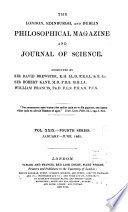 | 1865 - 1144 pages
...found it to consist of the remains of an organism which grew in large sessile patches, increasing «it the surface by the addition of successive layers of...this ancient organism, to which he gave the name of Eozoon Canadense, was a Foraminifer allied to Carpenteria by its habits of growth, but of more complex... | |
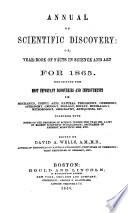 | 1865 - 388 pages
...the organic form, really filling up the interspaces of the calcareous fossil. Dr. Dawson of Montreal, carefully examined the laminated material, and he...chambers separated by calcareous laminae. Slices examined nucroscopically showed large irregular chambers with numerous rounded extensions, and bounded by walls... | |
 | 1865 - 372 pages
...increasing at the surlace by the addition of successive layers of clumbers separated by calcareous laminai. Slices examined microscopically showed large irregular...and bounded by walls of variable thickness, which aro stiidded with septal oriiices irregularly disposed; the thicker parts of the Avails revealed the... | |
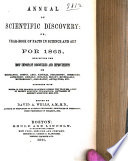 | 1866 - 374 pages
...which grew in large seseile patches, increasing at the surface by the addition of successive lavers of chambers separated by calcareous laminae. Slices...this ancient organism, to which he gave the name of Eozoon Canadense, was a Foraminifer allied to Carpenteria by its habits of growth, but of more complex... | |
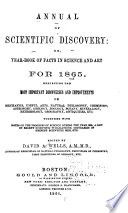 | 1866 - 368 pages
...increasing at the surface by the addition of successive layers of ch imbers separated by calcareous lamina. Slices examined microscopically showed large irregular...this ancient organism, to which he gave the name of EozoGn Canadense, was a Foraminifer allied to Carpenteria by its habits of growth, but of more complex... | |
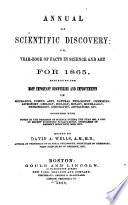 | 1865 - 372 pages
...consist of the remains of an organism which grew in large sessile patches, increasing at the suri'ace by the addition of successive layers of chambers separated...and bounded by walls of variable thickness, which aro studded with septal orifices irregularly disposed ; the thicker parts of the walls revealed the... | |
 | Sir John William Dawson - 1875 - 278 pages
...Canadian Geological Survey, it appears certain that these bodies were sessile by a broad base, and grew by the addition of successive layers of chambers separated by calcareous laminae, but communicating with each other by canals or septal orifices sparsely and irregularly distributed.... | |
 | Sir John William Dawson - 1875 - 278 pages
...Canadian Geological Survey, it appears certain that these bodies were sessile by a broad base, and grew by the addition of successive layers of chambers separated by calcareous laminae, but communicating with each other by canals or septal orifices sparsely and irregularly distributed.... | |
 | sir John William Dawson - 1875 - 290 pages
...Canadian Geological Survey, it appears certain that these bodies were sessile by a broad base, and grew by the addition of successive layers of chambers separated by calcareous laminae, but communicating with each other by canals or septal orifices sparsely and irregularly distributed.... | |
| |